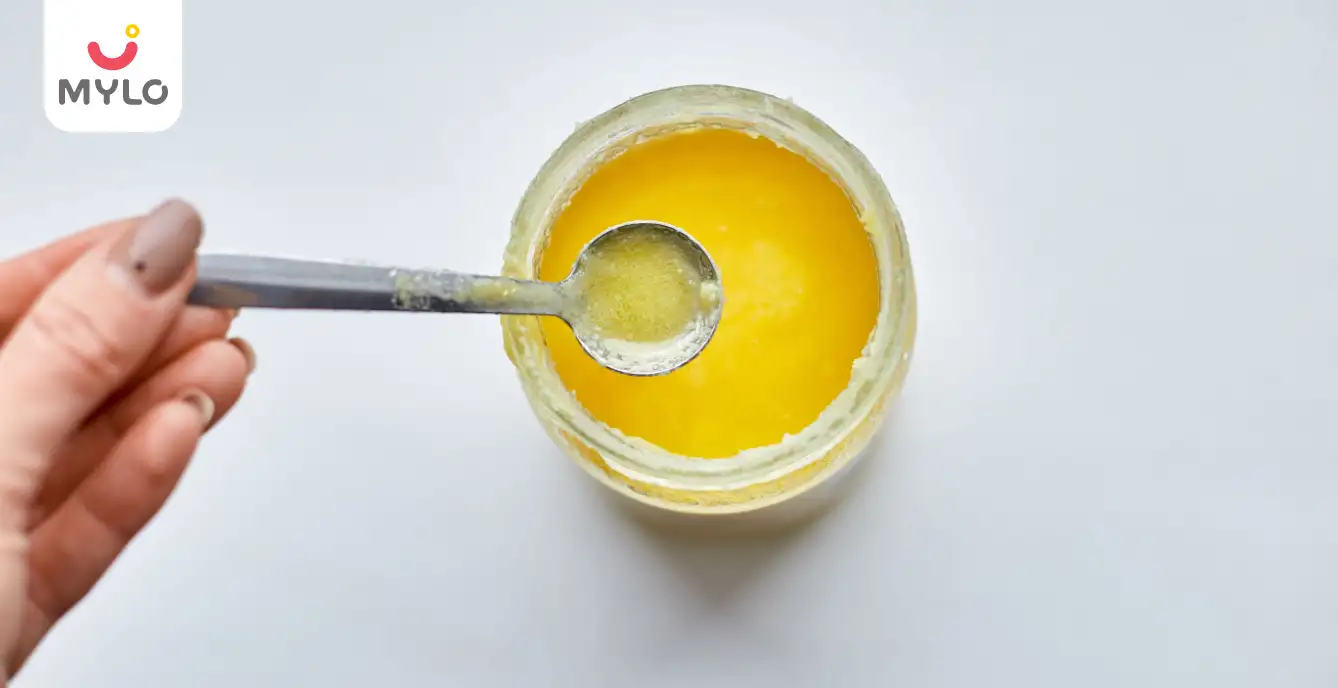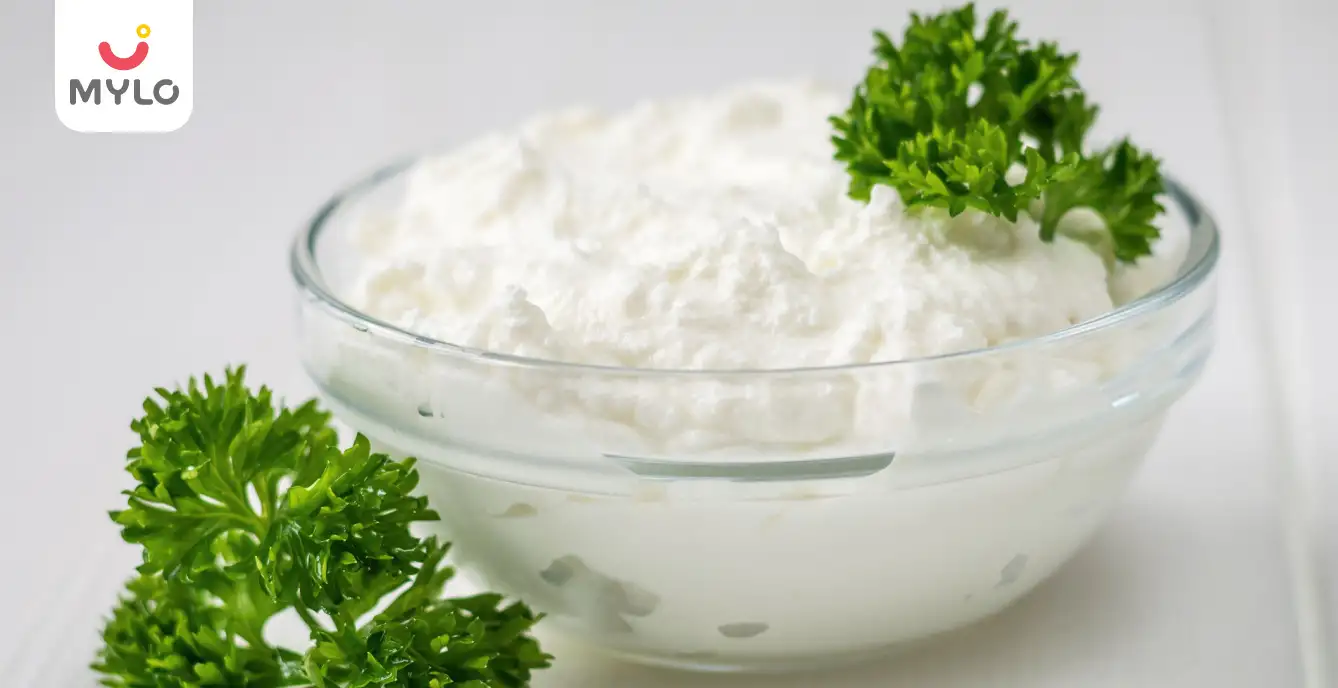Home

PCOS & PCOD

Is Milk Good for PCOS: Exploring the Dairy Dilemma
In this Article

PCOS & PCOD
Is Milk Good for PCOS: Exploring the Dairy Dilemma
Updated on 26 September 2023



Medically Reviewed by
Dr. Shruti Tanwar
C-section & gynae problems - MBBS| MS (OBS & Gynae)
View Profile

In recent years, there has been a growing interest in the relationship between diet and PCOS (Polycystic Ovary Syndrome). Among the various dietary factors, the debate surrounding the consumption of milk and dairy products has gained significant attention. But is milk good for PCOS?
On one hand, milk is often touted for its numerous health benefits, while on the other hand, it is criticized for potentially exacerbating PCOS symptoms. This article delves into the dairy dilemma, shedding light on the scientific evidence and exploring whether milk is truly good or bad for PCOS.
What is the relation between milk and PCOS?
Polycystic Ovary Syndrome (PCOS) is a hormonal disorder that affects many women worldwide. It is characterized by an imbalance of reproductive hormones, leading to irregular periods, cysts on the ovaries, and other symptoms. Many women with PCOS often wonder can we drink milk in PCOS.
Milk is a widely consumed dairy product and an excellent source of calcium, protein, and other essential nutrients. However, its impact on PCOS is a subject of debate. Some studies suggest that milk may have both positive and negative effects on PCOS symptoms. Understanding the relation between milk and PCOS is crucial for making informed dietary choices.
You may also like : Is Curd Good for PCOS: The Ultimate Guide to Debunking Myths and Discovering Benefits
Common myths about drinking milk in PCOS
There are several myths surrounding milk and PCOS. Let's debunk some of them:
1. Myth: Milk worsens PCOS symptoms
Some people believe that milk consumption can exacerbate PCOS symptoms. However, there is no scientific evidence to support this claim. In fact, milk is a rich source of calcium, which plays a vital role in maintaining bone health and may help alleviate PCOS-related osteoporosis risk.
2. Myth: Milk causes weight gain in PCOS
Weight gain is a common concern for women with PCOS, and there is a misconception that milk consumption can contribute to it. While milk does contain calories, it is not inherently responsible for weight gain. Moderation and portion control are key when incorporating milk into a PCOS-friendly diet.
3. Myth: Milk increases insulin resistance
Insulin resistance is a hallmark of PCOS, and some believe that milk consumption can further worsen this condition. However, research suggests that the impact of milk on insulin resistance is inconclusive. Individual factors and overall dietary patterns play a more significant role in managing insulin levels.
4. Myth: Milk leads to hormonal imbalances
PCOS is characterized by hormonal imbalances, leading to irregular periods and other symptoms. Some individuals worry that milk consumption can disrupt these hormonal levels. However, there is no scientific evidence to support this claim. Hormonal imbalances in PCOS are primarily driven by underlying metabolic and genetic factors.
5. Myth: Milk is necessary for a balanced diet in PCOS
While milk is a good source of nutrients, it is not the only option for achieving a balanced diet in PCOS. There are several alternatives available that can provide similar nutritional benefits without the potential risks associated with milk consumption. It is essential to consider individual preferences and dietary requirements when making dietary choices.
You may also like : Soy for PCOS: Should You Eat it or Avoid It?
What are the benefits of drinking milk for PCOS?
If you’re still wondering is milk good for PCOS, here are five benefits to provide you some clarity:
1. Calcium for bone health
Milk is an excellent source of calcium, a mineral crucial for maintaining strong and healthy bones. Women with PCOS are at a higher risk of developing osteoporosis due to hormonal imbalances and other factors. Including milk in their diet can help meet their calcium needs and reduce the risk of osteoporosis.
2. Protein for muscle health
Protein is essential for muscle health and repair. Milk contains high-quality proteins that can support muscle development and recovery. Women with PCOS may benefit from incorporating milk into their diet to support their overall muscle health and physical well-being.
3. Vitamin D for hormone regulation
Vitamin D plays a crucial role in hormone regulation and overall health. Milk is often fortified with vitamin D, which can help women with PCOS maintain optimal hormone levels. Adequate vitamin D levels may contribute to improved menstrual regularity and reduced PCOS symptoms.
4. Nutrient-rich beverage
Milk is a nutrient-rich beverage that provides a wide range of essential nutrients, including vitamins A, B12, and riboflavin. These nutrients are important for overall health and well-being. Including milk in the diet can help women with PCOS meet their nutritional needs and support their overall health.
5. Versatile ingredient in PCOS-friendly recipes
Milk is a versatile ingredient that can be used in various PCOS-friendly recipes. It can be incorporated into smoothies, oatmeal, or used as a base for healthy desserts. By utilizing milk in creative ways, women with PCOS can enjoy its benefits while still maintaining a balanced and varied diet.
You may also like : Is Ghee Good for PCOS: The Ultimate Guide to Benefits and Ways to Consume
What are the risks of drinking milk in PCOS?
While there are potential benefits to including milk in the diet of women with PCOS, it is important to consider the potential risks as well. Here are five risks associated with drinking milk:
1. Lactose intolerance
Some women with PCOS may also have lactose intolerance, which is the inability to digest lactose, the sugar found in milk. This can lead to digestive discomfort such as bloating, gas, and diarrhea. If lactose intolerance is a concern, alternative milk options or lactose-free milk can be considered.
2. Hormonal imbalances
Although the myth that milk causes hormonal imbalances in PCOS has been debunked, it is worth noting that milk contains hormones naturally present in cows. Some individuals may be more sensitive to these hormones, leading to potential disruptions in their own hormonal balance. Monitoring individual reactions to milk consumption is important in such cases.
3. Acne flare-ups
Acne is a common symptom of PCOS, and some individuals may find that milk consumption exacerbates their acne. While the link between milk and acne is not fully understood, it is worth considering for those who experience skin issues. Reducing or eliminating milk consumption may be beneficial in managing acne symptoms.
4. High calorie content
Milk is a calorie-dense beverage, and excessive consumption can contribute to calorie intake and potentially lead to weight gain. Women with PCOS who are trying to manage their weight should be mindful of their milk intake and consider portion sizes to ensure they are meeting their nutritional needs without overconsuming calories.
5. Potential allergenicity
Milk is a common allergen, and some individuals with PCOS may have milk allergies or sensitivities. Allergic reactions to milk can range from mild symptoms such as hives to severe reactions like anaphylaxis. If there is a known milk allergy or sensitivity, it is crucial to avoid milk and explore alternative options.
You may also like : PCOS Weight Loss in 1 Month: How to Shed Pounds Fast
Tips for safe consumption of milk for PCOS
For women with PCOS who choose to include milk in their diet, here are five tips for safe consumption:
1. Choose low-fat or non-fat milk
Opting for low-fat or non-fat milk can help reduce calorie and saturated fat intake while still providing essential nutrients. These options can be beneficial for women with PCOS who are managing their weight or have concerns about heart health.
2. Practice portion control
Maintaining portion control is essential when consuming milk. The recommended serving size is typically one cup (240 mL). Measuring portions can help ensure that the appropriate amount of milk is consumed without overindulging.
3. Consider organic or hormone-free milk
Choosing organic or hormone-free milk can help reduce potential exposure to hormones or antibiotics that may be present in conventionally produced milk. This option may be beneficial for individuals who are more sensitive to such additives.
4. Monitor individual reactions
Each person may react differently to milk consumption. It is important to monitor individual reactions and symptoms after consuming milk. If any adverse effects are noticed, such as digestive discomfort or changes in skin health, it may be necessary to reduce or eliminate milk from the diet.
5. Incorporate variety
While milk is a valuable source of nutrients, it is essential to include variety in the diet. Exploring other dairy and non-dairy alternatives can provide a wider range of nutrients and flavors. Yogurt, cheese, and plant-based milk options can be incorporated to diversify nutrient intake.
You may also like : Natural PCOS Treatment: The Ultimate Guide to Natural Remedies for PCOS
Alternatives for milk
For women with PCOS who choose to avoid or limit their milk consumption, here are three alternatives that can provide similar nutritional benefits:
1. Almond milk
Almond milk is a popular non-dairy alternative to milk. It is low in calories, lactose-free, and rich in vitamin E, which has antioxidant properties. Almond milk can be used as a substitute in various recipes or enjoyed on its own as a refreshing beverage.
2. Coconut milk
Coconut milk is another non-dairy option that can be used as an alternative to milk. It has a creamy texture and a slightly sweet taste. Coconut milk is a source of healthy fats and can add richness to both sweet and savory dishes.
3. Soy milk
Soy milk is a plant-based milk derived from soybeans. It is a good source of protein and contains essential amino acids. Soy milk can be used in cooking, baking, or enjoyed as a beverage. It is important to choose organic or non-GMO soy milk to avoid potential concerns related to genetically modified organisms.
FAQ’s
1. Can we drink turmeric milk in PCOS?
Drinking turmeric milk for PCOS can be a flavorful way to incorporate turmeric into the daily routine. However, it is essential to note that turmeric milk should not be considered a cure or treatment for PCOS.
2. Is almond milk good for PCOS?
Almond milk is a suitable alternative for women with PCOS who choose to avoid dairy or limit their milk consumption. It is low in calories, lactose-free, and contains no cholesterol.
The Bottomline
In answer to the initial question- is milk good for PCOS, the relation between milk and PCOS is a complex and individualized matter. While milk can provide valuable nutrients, it is important for women with PCOS to consider their own health goals, preferences, and potential sensitivities when deciding whether to include milk in their diet. Consulting with a healthcare professional or registered dietitian is always recommended to personalize dietary choices and create a well-balanced eating plan that supports overall health and PCOS management.
References
1. Janiszewska J, Ostrowska J, Szostak-Węgierek D. (2020). Milk and Dairy Products and Their Impact on Carbohydrate Metabolism and Fertility-A Potential Role in the Diet of Women with Polycystic Ovary Syndrome. Nutrients.
2. Rajaeieh G, Marasi M, Shahshahan Z, Hassanbeigi F, Safavi SM. (2014).The Relationship between Intake of Dairy Products and Polycystic Ovary Syndrome in Women Who Referred to Isfahan University of Medical Science Clinics in 2013.





Medically Reviewed by
Dr. Shruti Tanwar
C-section & gynae problems - MBBS| MS (OBS & Gynae)
View Profile


Written by
Anandita Sharma
Drawing on more than a decade of expertise in administration, Anandita Sharma currently serves as a content operations e
Read MoreGet baby's diet chart, and growth tips

Related Articles
Related Questions
Influenza and boostrix injection kisiko laga hai kya 8 month pregnancy me and q lagta hai ye plz reply me

Hai.... My last period was in feb 24. I tested in 40 th day morning 3:30 .. That is faint line .. I conculed mylo thz app also.... And I asked tha dr wait for 3 to 5 days ... Im also waiting ... Then I test today 4:15 test is sooooo faint ... And I feel in ma body no pregnancy symptoms. What can I do .

Baby kicks KB Marta hai Plz tell mi

PCOD kya hota hai

How to detect pcos

RECENTLY PUBLISHED ARTICLES
our most recent articles

PCOS & PCOD
The Ultimate Guide to Using Ashokarishta for PCOS

PCOS & PCOD
PCOS Pain: The Ultimate Guide to Causes and Effective Management

Leisure
10 Best Mystery Books to Read in 2023

Books
10 Best Non-Fiction Books to Read in 2023

PCOS & PCOD
Is Ghee Good for PCOS: The Ultimate Guide to Benefits and Ways to Consume

PCOS & PCOD
Is Curd Good for PCOS: The Ultimate Guide to Debunking Myths and Discovering Benefits
- Dark Chocolate for PCOS: Unlocking the Potential of a Guilt-Free Indulgence
- Beetroot for PCOS: Discovering a Natural Approach to Managing Symptoms
- Soy for PCOS: Should You Eat it or Avoid It?
- Cinnamon for PCOS: Discovering the Natural Support You've Been Missing
- When Do Babies Start Walking?
- The Ultimate Guide to 4th Month Pregnancy Symptoms
- Your Guide to 2 Months Pregnant Symptoms: What to Expect
- The Ultimate Balanced Diet Chart: Your Guide to Optimal Nutrition
- Mundan Ceremony: A New Parent's Guide to Customs, Traditions and Celebrations
- Dates for PCOS: How to Harness their Health Benefits
- Coconut Water for PCOS: Discovering the Natural Support You've Been Missing
- Everything You Need to Know About the Length of Vagina
- Herbs for Male Fertility: Exploring Herbal Solutions for Male Reproductive Health
- Is Banana Good for PCOS: A Comprehensive Guide to Understanding Their Relationship


AWARDS AND RECOGNITION

Mylo wins Forbes D2C Disruptor award

Mylo wins The Economic Times Promising Brands 2022
AS SEEN IN
















- Mylo Care: Effective and science-backed personal care and wellness solutions for a joyful you.
- Mylo Baby: Science-backed, gentle and effective personal care & hygiene range for your little one.
- Mylo Community: Trusted and empathetic community of 10mn+ parents and experts.
Product Categories
baby carrier | baby soap | baby wipes | stretch marks cream | baby cream | baby shampoo | baby massage oil | baby hair oil | stretch marks oil | baby body wash | baby powder | baby lotion | diaper rash cream | newborn diapers | teether | baby kajal | baby diapers | cloth diapers |




